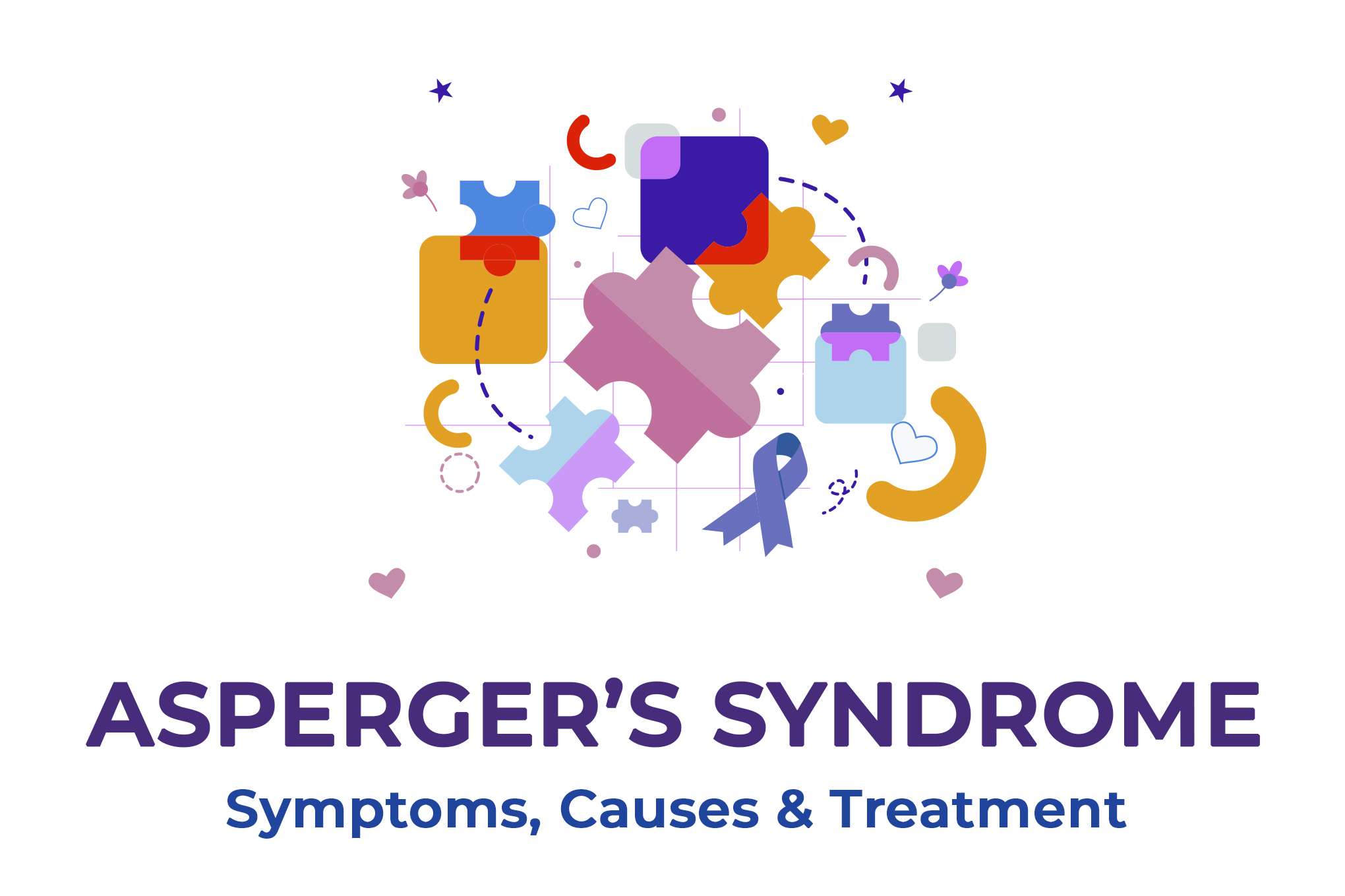Asperger’s Syndrome is a subtype of autism that falls under the umbrella of autism spectrum disorder (ASD). Even though Asperger’s Syndrome is an old term and falls under ASD, many people continue to identify themselves with this label. However, doctors diagnose people with Asperger’s as autism, while some people also call it ‘high-functioning’ autism.
What is Asperger’s Syndrome?
Asperger’s syndrome is a neurological developmental disorder belonging to the autism spectrum disorder. People with Asperger’s syndrome are considered to have good cognitive and language skills but struggle with communication and social interaction. Mostly, their thinking patterns and behaviors tend to be rigid and repetitive. However, those with Asperger’s have fewer support requirements as compared to autistic people that have higher levels of day-to-day support.
Typically, children and adolescents with Asperger’s Syndrome have trouble understanding social situations and subtle communication forms, such as body language, humor, and sarcasm. Generally, boys are three to four times more likely to develop Asperger’s Syndrome than girls. The neurological disorder is diagnosed between the ages of five and nine but can be diagnosed as early as three years.
History
Viennese pediatrician Hans Asperger first described Asperger’s syndrome, previously known as Asperger’s disorder, in the 1940s. Hans had observed autism-like behaviors, such as difficulties with social and communication skills in boys with average intelligence and language development. Many researchers used the term ‘high-functioning autism’ to describe such people. Asperger’s syndrome was considered a milder form of autism. Uta Frith, a professor at the Institute of Cognitive Neuroscience of University College London, described it as “having a dash of autism.”
In 2013, the American Psychiatric Association’s Diagnostic and Statistical Manual of Mental Disorders (DSM-IV) added Autistic disorder, Asperger’s disorder, and other developmental disorders under the umbrella diagnosis of autism spectrum disorder.
What are the Signs and Symptoms of Asperger’s Syndrome?
Common signs and symptoms in children with Asperger’s Syndrome are:
- Poor social interaction skills
- Conversations revolving around themselves or their topic of interest
- Less facial expressions than others and poor understanding of other people’s emotions
- Speech tone may vary, such as being flat, high-pitched, quiet, loud, or robotic
- Poor understanding of nonverbal actions, such as gestures, body language, and facial expressions
- Intense obsessions with certain specific subjects
- Small changes in the routine may lead to distress
- Easy memorizing information of interest
- Difficulty with motor skills and coordination
- Clumsy, uncoordinated movements, including difficulty in writing
- Emotional dysregulation leading to verbal or behavioral outbursts, self-harm, or tantrums
- Sensory issues; hypersensitivity to lights, sounds, or textures
There is no delay in language development for most children with Asperger’s. They may even have good grammar skills and an advanced vocabulary, but they tend to be literal in their speech because they struggle in using language in a social context. In addition to problems with attention span and organization, they usually have average intelligence.
Causes of Asperger’s Syndrome
It is a neurological disorder caused by changes in the brain, although the exact causes of Asperger’s syndrome are unknown. However, researchers have identified a few potential factors, including genetics, brain abnormalities, and environmental factors that may be involved in the development of this syndrome.
Research shows that mutations in genes controlling brain development and brain cell communication can be associated with Asperger’s syndrome. Furthermore, there is a growing body of evidence linking environmental factors to Asperger’s, but more research is needed. Some environmental causes for Asperger’s are:
- Pregnant females with gestational diabetes, obesity, high blood pressure, and viral or bacterial infections are more likely to have children with Asperger’s.
- Pregnant females taking antidepressants may be associated with children developing Asperger’s.
- Pregnant females exposed to environmental toxins such as heavy metals, phthalates, and pesticides are more likely to have children with Asperger’s.
Diagnosis of Asperger’s Syndrome
Doctors and medical professionals diagnose Asperger’s syndrome through assessment, including a developmental history and observation. Children early diagnosed with Asperger’s have an increased chance of getting treatment, allowing them to perform better at school and eventually live independently. A healthcare professional assesses the following key areas:
- Language skills
- Social interactions
- Facial expressions
- Motor coordination and motor skills
- Interest and attitudes while interacting with others
It is important to note that healthcare professionals no longer diagnose Asperger’s instead, they diagnose ASD.
Asperger’s Therapies and Services
Asperger’s syndrome is not a medical condition that may require specific treatment. Autistic people may need support when handling activities of daily life. There is not one specific support applicable to all people with an autism spectrum disorder. Different people have different needs, and combining various therapies and services may help address an individual’s specific needs.
Some Asperger’s therapies and services include:
- Cognitive behavioral therapy helps address anxiety and other personal challenges.
- Social skills training classes help with conversational skills and understanding of body language, and gestures.
- Speech therapy helps improve voice control and other speech disorders.
- Physical and occupational therapy helps improve coordination.
- Psychoactive medicines help manage associated anxiety, depression, and attention deficit hypersensitivity disorder (ADHD).
Conclusion
Asperger’s syndrome, along with other types of autism have been combined under one umbrella diagnosis called ‘autism spectrum disorder.’ There is no exact cause of Asperger’s, but genetic and environmental factors play a significant role in its development. If you or anyone you know may be autistic, it is imperative to consult a doctor or mental health professional.




